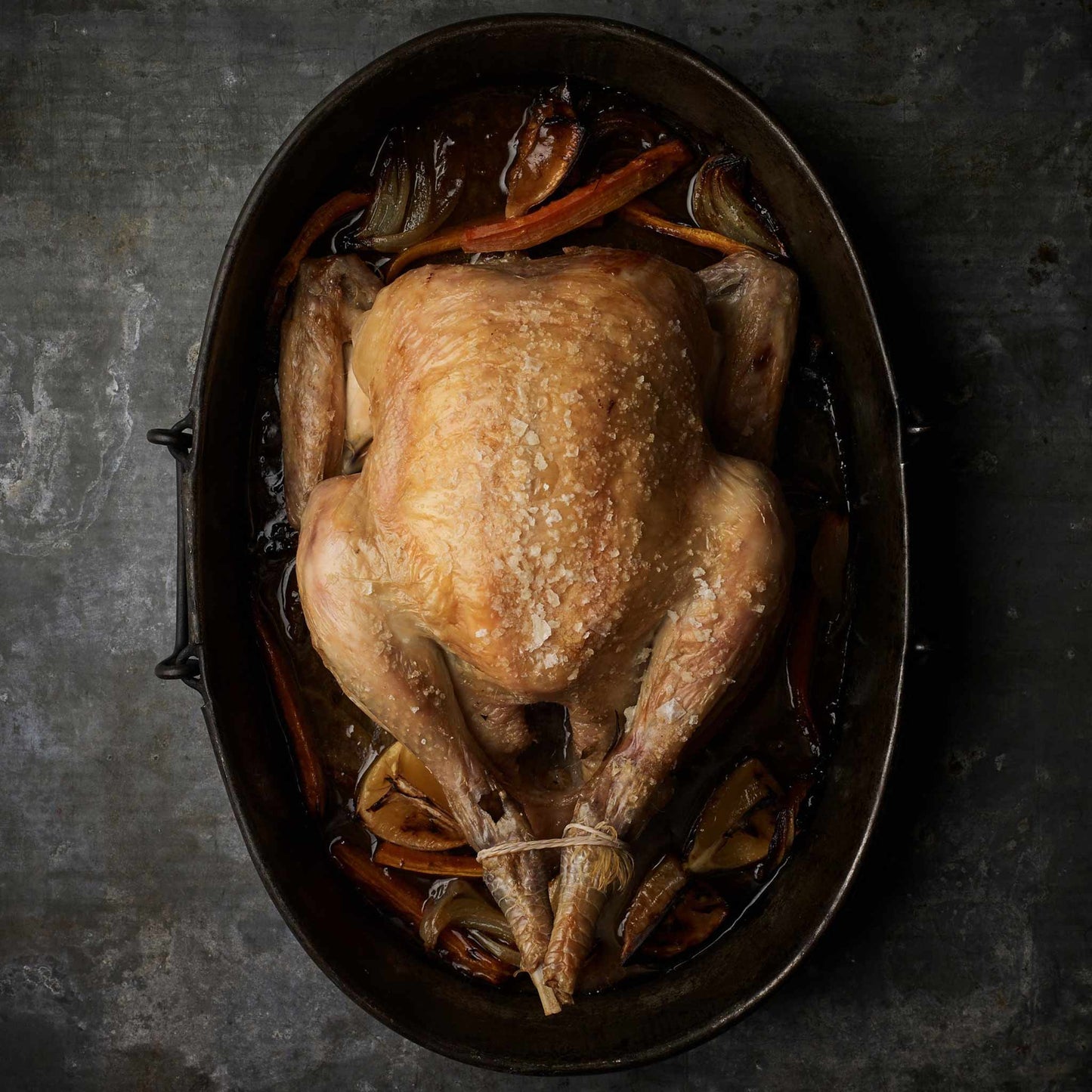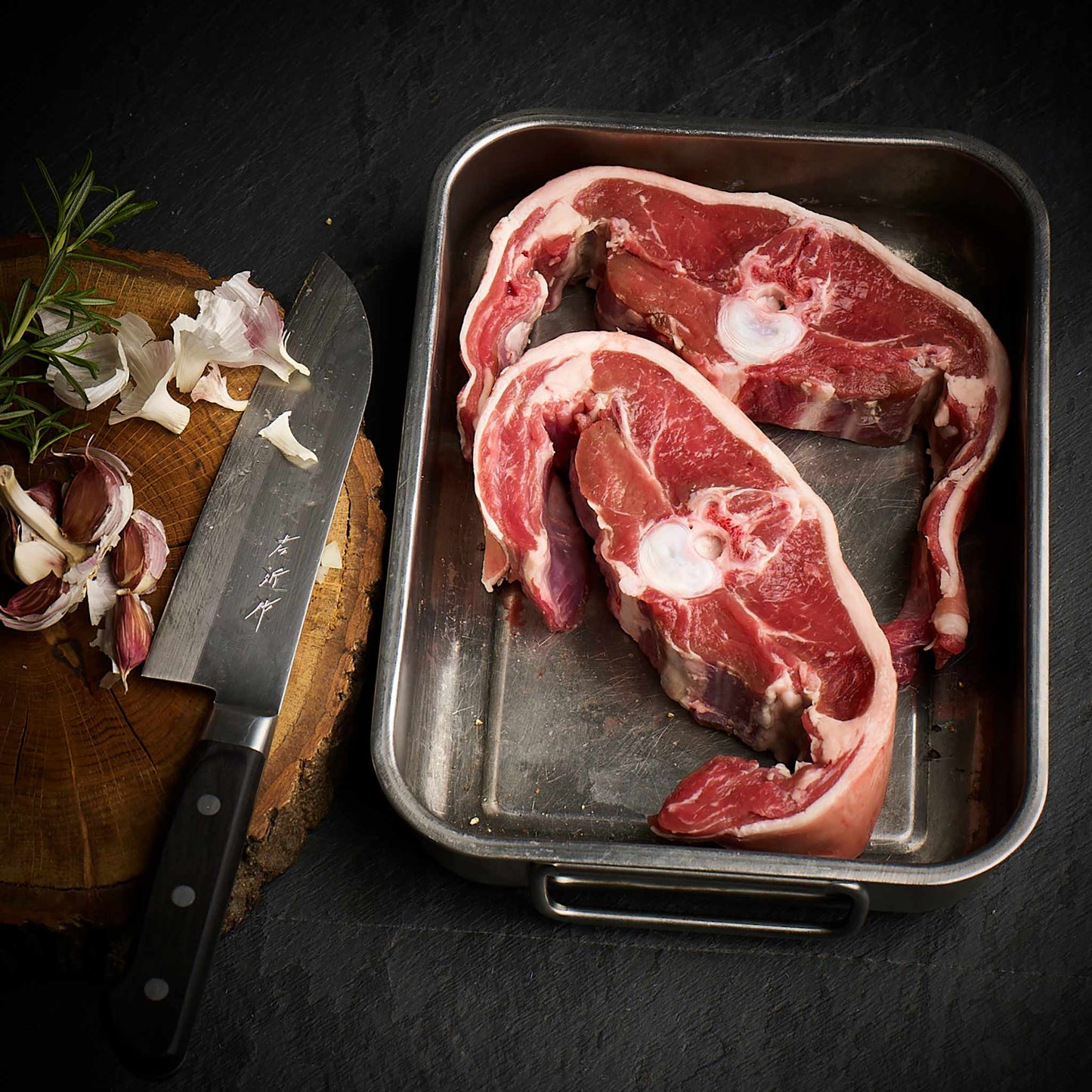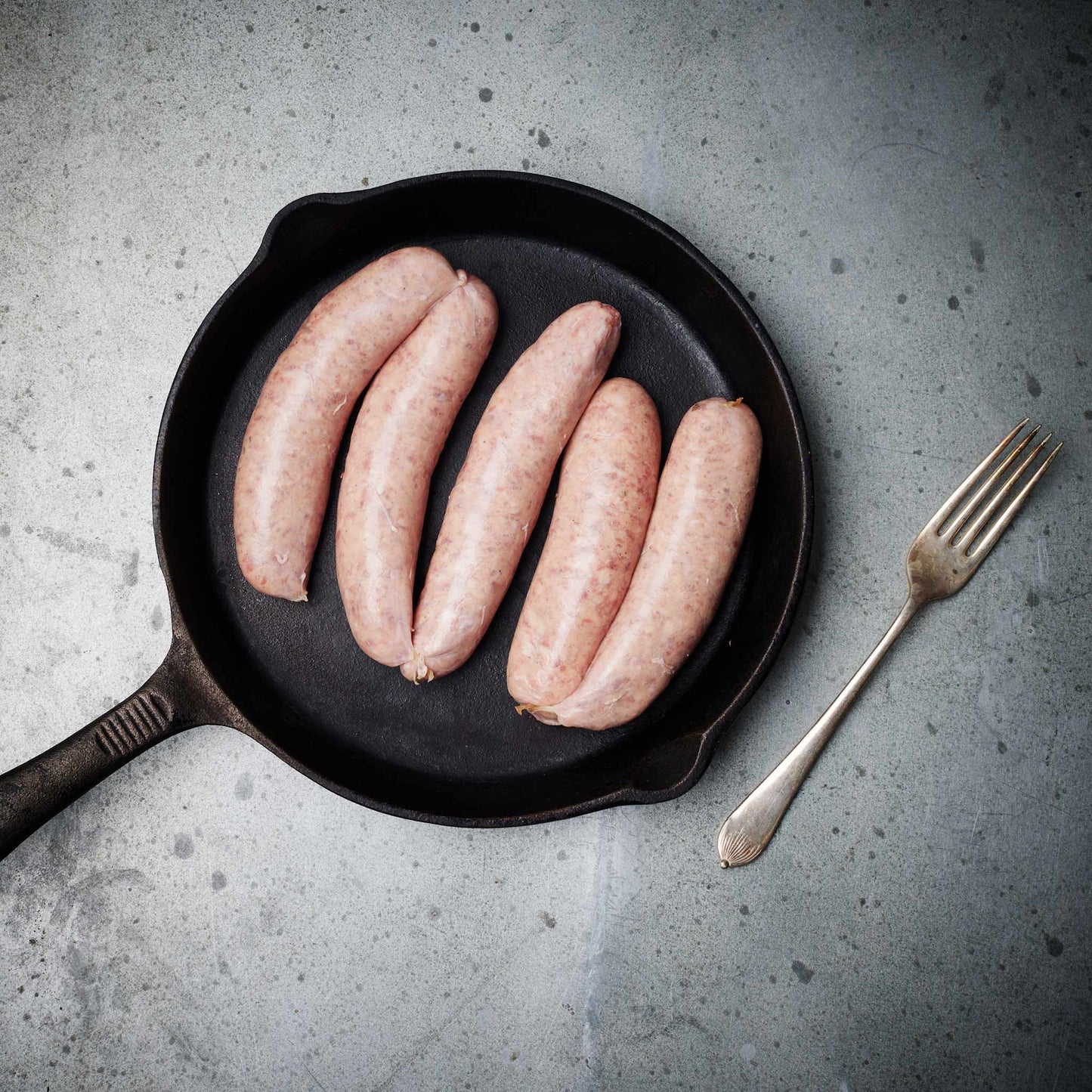We source our chicken from one farm in Leicestershire. The farm is Pasture for Life certified and rears truly free range, outdoor birds.

It's hard to say exactly when our ancestors started to cook with anthropologists arguing a little but phylogenetic analysis suggests that human ancestors may have invented cooking as far back as 1.8 million to 2.3 million years ago.
Re-analysis of burnt bone fragments and plant ashes from the Wonderwerk Cave in South Africa has provided evidence supporting control of fire by early humans by 1 million years ago meaning we have been BBQing for a while!
Around 1.9 million years ago some major changes occurred in hominin biology. Compared with its ancestors, Homo erectus had very small teeth, a small body and a much larger brain. According to a controversial hypothesis put forward by primatologist Richard Wrangham, these changes were driven by cooked food. In fact, Wrangham believes that cooking drove our lineage’s divergence from more ape-like ancestors and that the bodies of Homo sapiens couldn’t exist without cooked food.
Cooking requires cognitive skills that go beyond controlling fire, such as the ability to resist the temptation to scoff the ingredients, patience, memory and an understanding of the transformation process. Recent experiments with chimps found that they have many of the cognitive and behavioural skills needed for cooking – and therefore it’s likely that Homo erectus did too.
There are, however, flaws in the cooking hypothesis. Many of the adaptations attributed to cooked food such as large brains could have arisen through an increase in raw meat consumption. The disconnect in time between the biological evidence and the control of fire is another stumbling block.
But whenever cooking was invented, it has evolved into one of the most varied and inventive elements of human culture. We cook thousands of different types of animal, plant, fungus and algae using a dazzling array of techniques. We spend far more hours planning and preparing food than actually eating it, and then sit down to watch programmes about it, hosted by people who have become millionaire household names. We cook, therefore we are.
But what about BBQ, well BBQ as we know it that is meat cooked over a grill or pit, covered in spices and basting sauce originated in the Caribbean.
The word barbecue comes from the language of a Caribbean Indian tribe called the Taino. Their word for grilling on a raised wooden platform is barbacoa. The word first appeared in print in a Spanish explorer's account of the West Indies in 1526, according to Planet Barbecue.
Linguists have suggested the word was loaned successively into Spanish, then Portuguese, French, and English. In the form barbacado the word was used in English in 1648 by the supposed Beauchamp Plantagenet in the tract A description of the province of New Albion: "the Indians in stead of salt doe barbecado or dry and smoak fish". According to the OED, the first recorded use in modern form was in 1661, in Edmund Hickeringill's Jamaica Viewed: "Some are slain, And their flesh forthwith Barbacu'd and eat"; it also appears in 1672 in the writings of John Lederer following his travels in the North American southeast in 1669–70. First known use as a noun was in 1697 by the English buccaneer William Dampier. In his New Voyage Round the World, Dampier wrote, " ... and lay there all night, upon our Borbecu's, or frames of Sticks, raised about 3 foot from the Ground".
Samuel Johnson's 1756 dictionary gave the following definitions:
"To Barbecue – a term for dressing a whole hog" (attestation to Pope)
"Barbecue – a hog dressed whole"
While the standard modern English spelling of the word is barbecue, variations including barbeque and truncations such as bar-b-q or BBQ may also be found.
The spelling barbeque is given in Merriam-Webster and the Oxford Dictionaries as a variant. In the southeastern United States, the word barbecue is used predominantly as a noun referring to roast pork, while in the southwestern states cuts of beef are often cooked.



